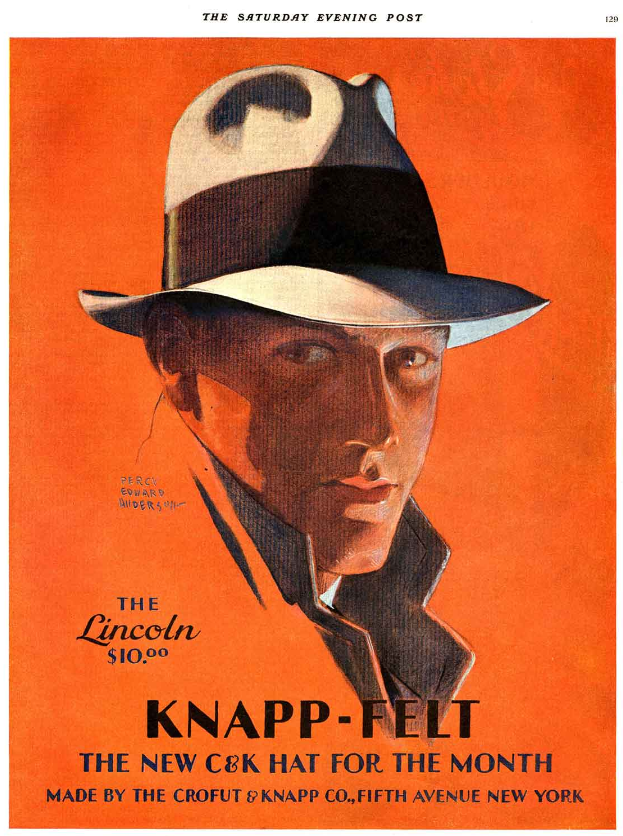I am absolutely the last person on the planet to write about style or fashion, but the images of the 1920’s are intriguing as they represented a real shift in how people saw themselves. This cover of the Saturday Evening Post, one if not the most popular magazine of the era, says it all. This particular advertisement is arresting because, not only is he wearing a great hat, but the image is adventuresome and slightly dangerous, as if depicting a gangster or a spy. There is a dash of romance, peril, and mystery in this image. This was a new attraction. The Allure of the Bad Boy had begun.
To make the Post cover, where artists such as Norman Rockwell depicted a softer side of the American scene, was a big deal. The Post was one thing, but what about the real world (or the not-so-real world)?
This photo is of a basic yacht club event. Notice the dapper men, particularly the one holding the lady’s fur coat. The image is iconic more because of what it doesn’t include than what it does. Life was good for the lucky few in certain worlds where elegance was important and the specter of war and depression hadn’t even dampened the horizon. The rituals of a summer event like a yacht race carried with it codes of dress, decorum, and a smattering of optimism.
Power boat racing was the rage. The thinking went that if rumrunners could go as fast as possible, then so could pleasure boats. The sport drew huge crowds and was fairly egalitarian, even including women drivers.
Here’s Helen Dyer is seated at the helm of her Dyer Motorcraft. She was the business brains behind the company that built the boats. And she liked to race them too. After all, if women could vote, fly airplanes, and drive ambulances, why not run businesses and race powerboats?
One racing event drew 450 boats to Narragansett Bay. There was some discussion if sea planes could or should be included in the competition. Speed was key and anything seemed possible.
So, what’s the point of all this anyway? It’s not nostalgia, really, as that would require a serious pair of rose-colored glasses and a case of amnesia. Perhaps it’s the long view backward, or a response to the current relentless barrage of (mostly chaotic) news. Or maybe it represents an existential moment when it was possible to define the world by a summer’s day and a pair of stadium pumps.
--Bird Jones




